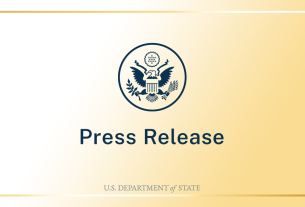In an era of global uncertainty, polarizing ideologies, and rising inequality, the concept of true multilateralism emerges not merely as a diplomatic or institutional ideal, but as a moral imperative—one that transcends politics and permeates every facet of our human experience: business, religion, and daily life.
Multilateralism, in its truest form, is not simply about having multiple stakeholders at the table. It is about ensuring that each voice is heard, each dignity respected, and each outcome guided by fairness, inclusion, and justice. Without these ethical cornerstones, multilateralism becomes a hollow ritual—an aesthetic of dialogue without the substance of change.
Inclusion Beyond Symbolism
Inclusion is the soul of true multilateralism. It calls not just for diversity of presence, but for equality of participation. Whether in boardrooms, interfaith councils, international forums, or community gatherings, no voice should be tokenized, and no identity sidelined.
In business, inclusion must go beyond hiring quotas and representation metrics. It must mean access to capital, opportunity, mentorship, and innovation for all—regardless of gender, ethnicity, social class, or geography. Companies practicing true multilateralism are those that actively dismantle the barriers to upward mobility and build ecosystems where ideas, not identities, define success.
In religious life, inclusion must mean interfaith respect and intrafaith compassion. The essence of every major faith tradition lies in hospitality, mercy, and the recognition of a shared human journey. True multilateralism in religion does not dilute doctrinal differences but dignifies coexistence by refusing to demonize or marginalize the ‘other’.
Fairness as a Framework, Not a Favor
At the heart of true multilateralism lies fairness—not as an act of charity, but as a principle of justice. Fairness demands equitable distribution of power, resources, and responsibility.
In global governance, fairness is not achieved when a few nations dictate terms that bind the many. It emerges when multilateral institutions reflect the realities of a multipolar world, ensuring that the Global South has as much influence as the Global North, and that development goals are shaped by local contexts, not distant assumptions.
In everyday interactions, fairness is about ensuring that the rules apply equally to all—from the shop floor to the schoolyard, from legal systems to lending institutions. It is about ethical reciprocity: to treat others not only as we would wish to be treated, but as they deserve to be treated in light of their circumstances and contributions.
Non-Victimization: The Foundation of Trust
The dignity of any system—be it economic, spiritual, or social—can be measured by how it treats the most vulnerable within it. True multilateralism leaves no space for victimization—whether through systemic bias, political suppression, economic exclusion, or religious discrimination.
In business, this means protecting workers from exploitation, customers from deception, and citizens as well as competitors from unfair practices. It means building models that lift rather than crush, that empower rather than exploit, not one that takes and takes from it’s subjects to build itself under the guise of politics, governance or religion.
In religion, non-victimization demands that no one is persecuted for belief, background, or spiritual expression. Faith, at its best, should be a shield for the weak, not a sword against difference.
In public discourse, it means creating environments where dissent is not punished, but heard; where mistakes are not met with vengeance, but with redemptive justice.
Righteousness as a Universal Ethic
True multilateralism is ultimately a moral endeavor. It asks not merely what is strategic or permissible, but what is right. Righteousness is often misunderstood as piety alone, but in truth, it is integrity in motion—the daily discipline of doing what is ethical, even when it might be deemed costly.
Whether in trade negotiations or neighborhood decisions, whether running a global corporation or leading a household, righteousness requires that power be used to uplift, not to subjugate or suppress. It calls for leaders and individuals alike to act with transparency, humility, and courage—resisting the temptation to serve personal interests at the expense of collective good.
A Call for Conscious Multilateralism
True multilateralism cannot be legislated into being. It must be lived, modeled, and taught. It demands leadership that listens, systems that share, and people who choose principle over profit, justice over expedience and principle over profit, one that acknowledge that while profit is good, it should be fair, build up, not tear down and definitely not at the expense of others.
It is not a utopian dream, but a practical necessity in a deeply interconnected world. The climate crisis, the digital divide, the refugee crisis, and global health inequities—all remind us that no one is safe until everyone is valued.
The time has come for conscious multilateralism—grounded not in convenience or rhetoric, but in an unwavering commitment to inclusion, fairness, non-victimization, and moral responsibility.
This is not only how we build a better world, but how we preserve the dignity of our shared humanity.



